8.4 The Changing Workplace
1/10
There's no tags or description
Looks like no tags are added yet.
Name | Mastery | Learn | Test | Matching | Spaced | Call with Kai |
|---|
No analytics yet
Send a link to your students to track their progress
11 Terms
Cottage Industry
Manufacturing based in homes rather than in a factory, commonly found before the Industrial Revolution.
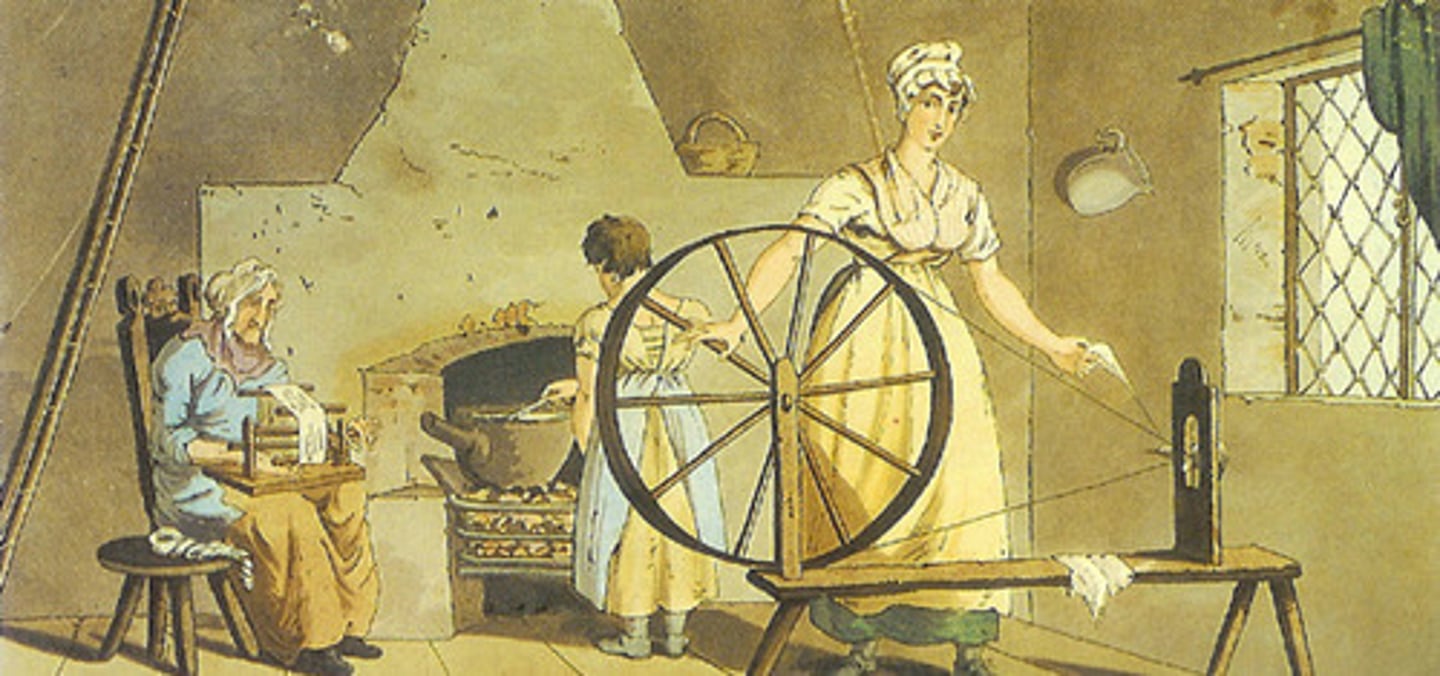
Master
Having or showing very great skill or proficiency.
Apprentice
a person who is learning a trade from a skilled employer, having agreed to work for a fixed period at low wages.
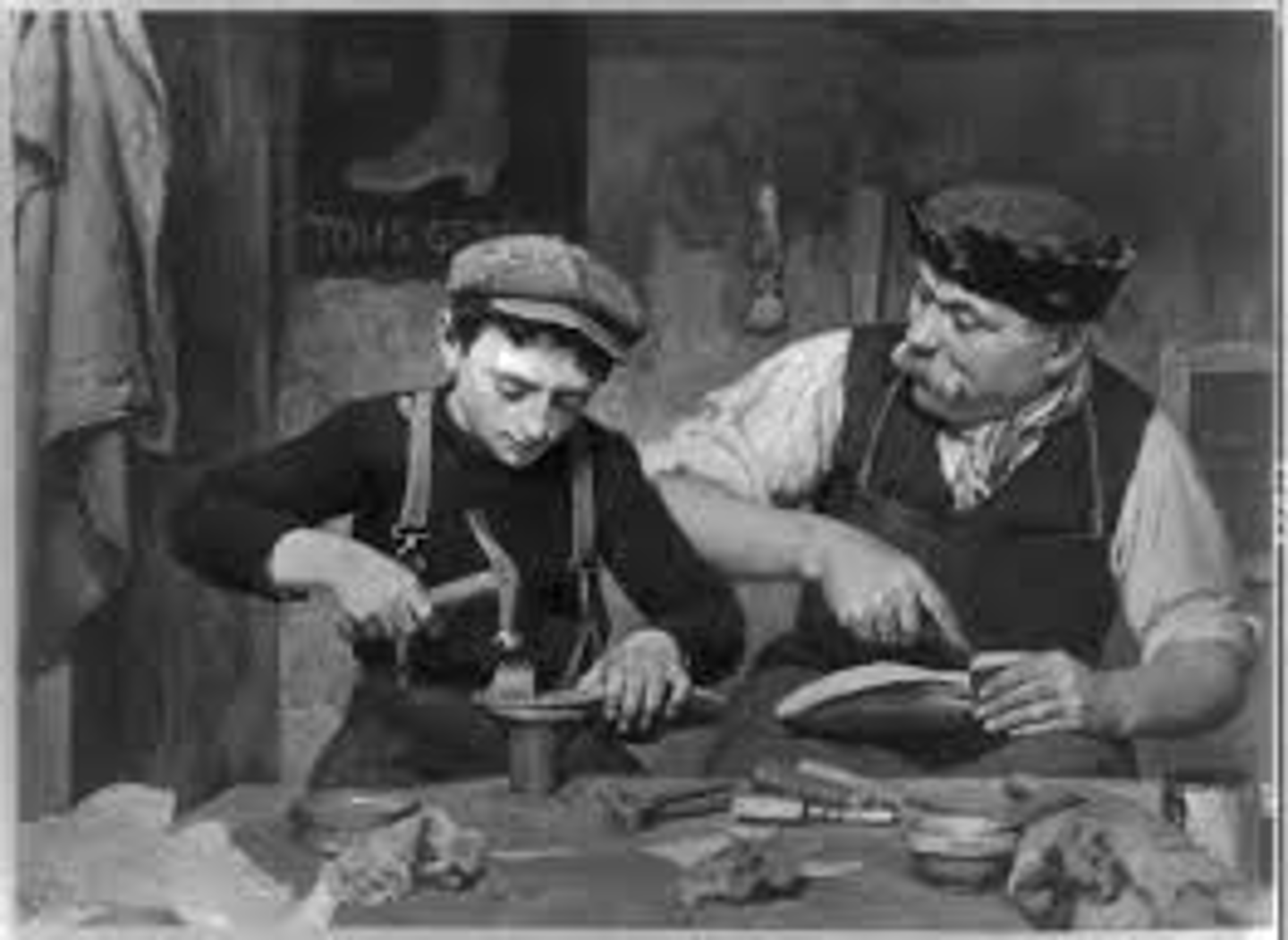
Journeyman
A person who has learned a particular trade or craft but has not become an employer, or master
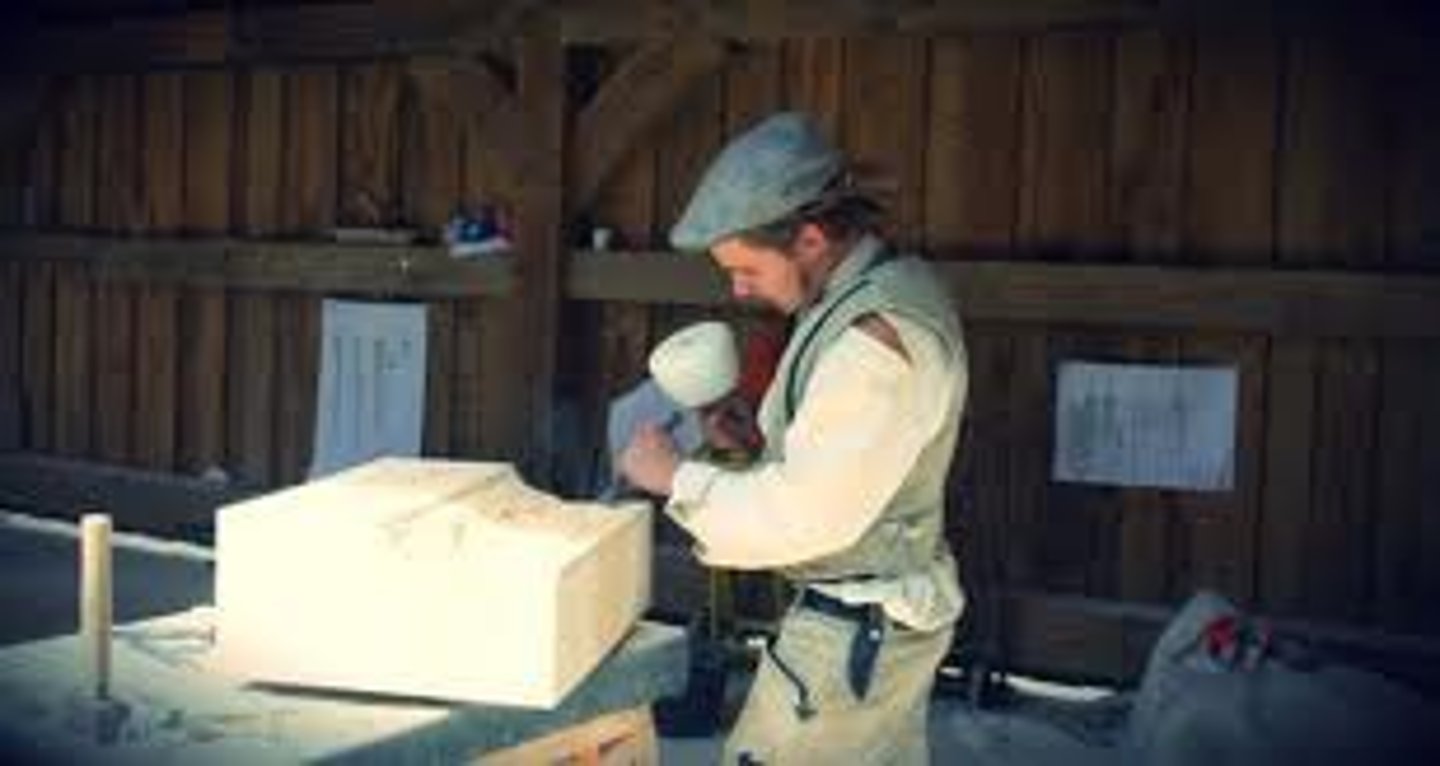
New Manufacturing Techniques Revolutionized US Economy
Production time drops, allowing a surplus of goods to be created fast
Cost of making and repairing goods was reduced
Allowed unskilled workers to take jobs at lower salaries
Why did factory owners tend to hire young women instead of men?
Employers could pay them lower wages to do same job as men
Behavior and productivity could be closely controlled
Mill Girl
unmarried farm girl, under age of 30 who worked under strict supervision and scrutiny
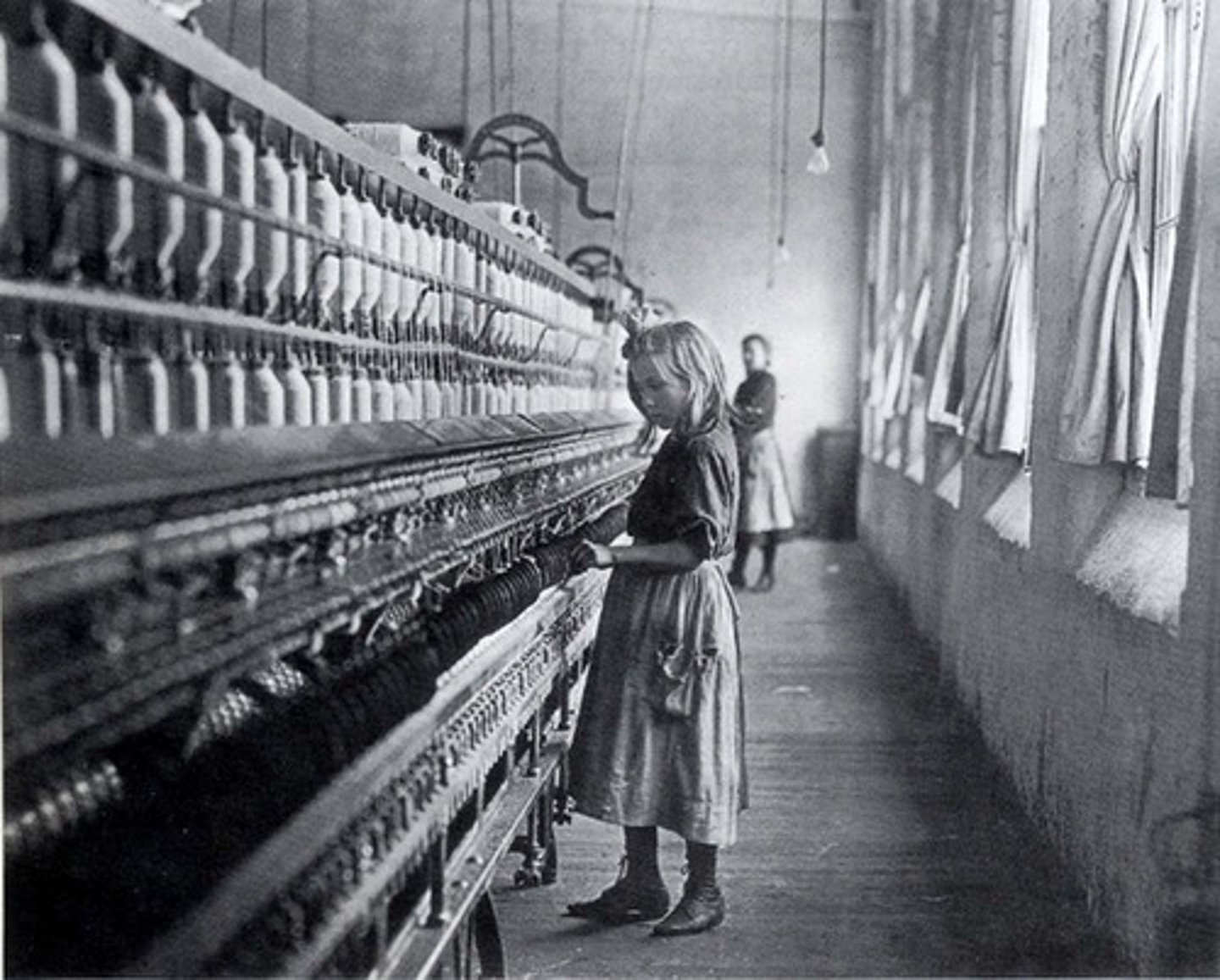
Strike
a work stoppage intended to force an employer to respond to demands
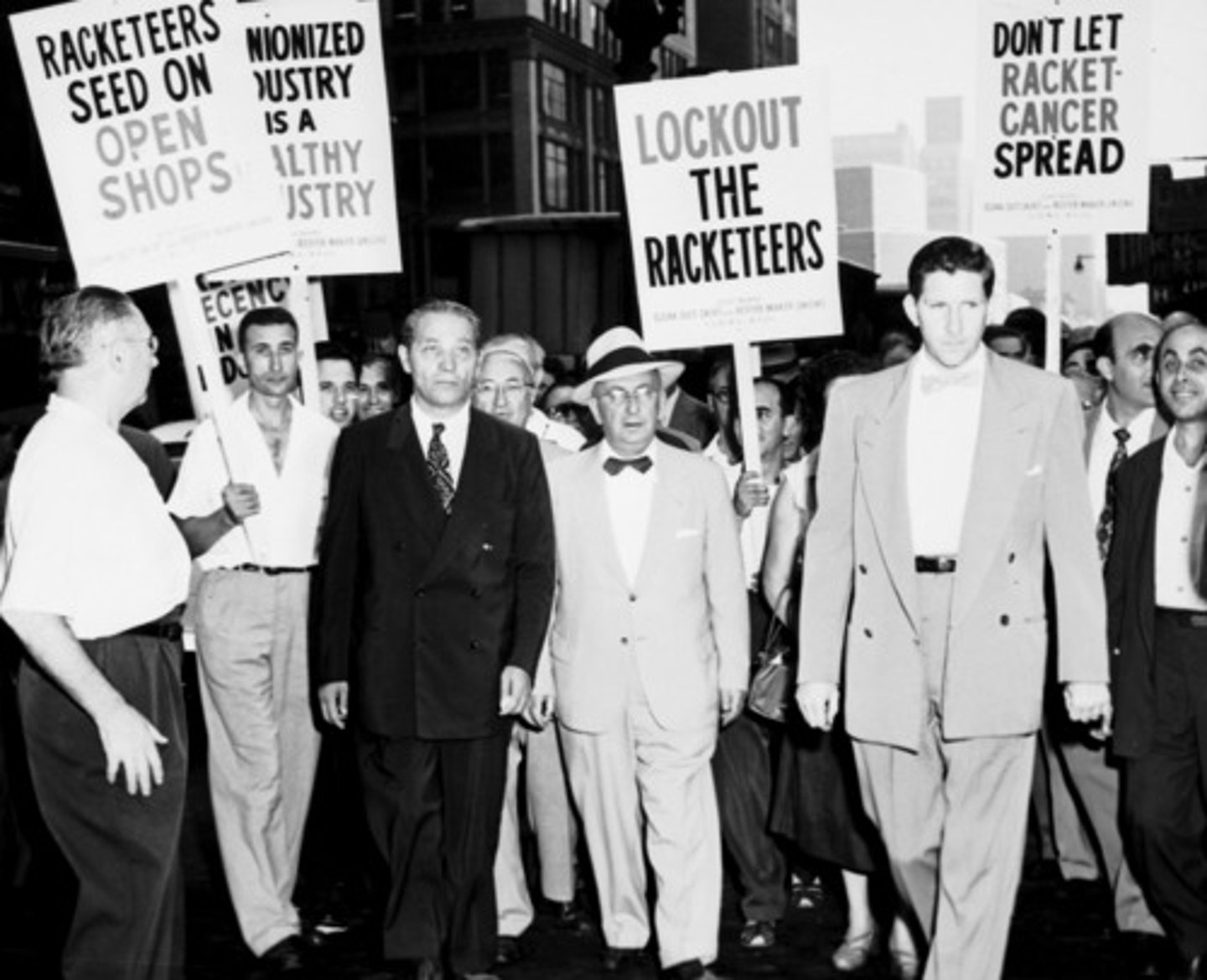
How did strikes for higher wages at the Lowell mills end?
Companies won earlier strikes because they could easily replace striking workers with cheap immigrant labor
Later strikes were more effective because workers organized into unions and held out for better conditions
National Trades' Union
the first national association of trade unions, united workers from many occupations into one labor organization
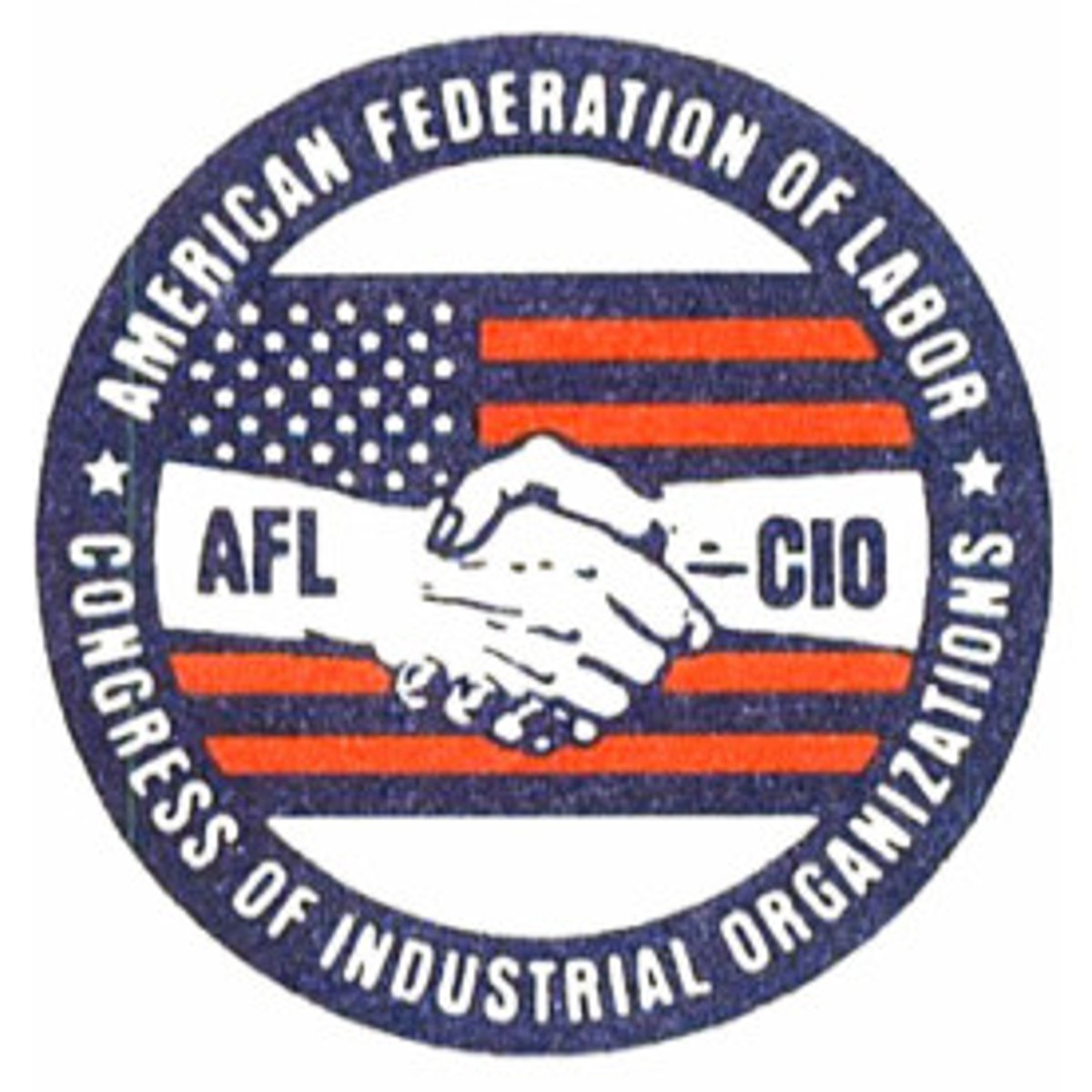
The Changing Workplace
Unskilled labor brings omen and immigrants in the work place
Strikes based on poor working conditions
Unions created to protect workers' rights